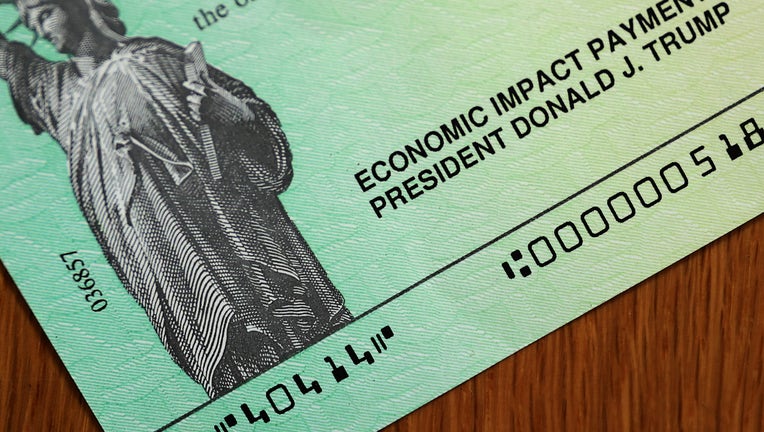Dozens of Austrians reportedly received COVID-19 stimulus checks in mail from US government

FILE - U.S. President Donald Trump's name appears on the coronavirus economic assistance checks that were sent to citizens across the country April 29, 2020 in Washington, DC.
VIENNA - According to local news reports, citizens of Austria have been receiving $1,200 coronavirus stimulus checks in the mail from the U.S. government.
Austrian public broadcaster ORF reported Monday that 73-year-old retiree Manfred Barnreiter and his wife both received the stimulus checks in the mail labeled “economic impact payment, President Donald J. Trump.”
Thinking it might have been fraud, Barnreiter took the check to the bank and was actually able to receive the funds three days after cashing the check following a confirmation from his bank that it did indeed come from the United States government.
Perplexed as to why he would have been eligible at all to receive the money, the only explanation he could come up with was a brief stay in the U.S. for two years where he worked as a waiter in the 1960s.
RELATED: Trump says Americans can expect another round of coronavirus stimulus payments
According to ORF, at least 45 U.S. COVID-19 stimulus checks have been cashed at Sparkasse Bank in northern Austria.
Paul Kaiser, a spokesperson for Raiffeisenlandesbank, an Austrian banking company, blamed the financial snafu on a data breach, according to ORF.
Kaiser told the outlet that the U.S. government confirmed the mistake, but the U.S. Treasury Department did not immediately respond for comment from FOX Television Stations.
Sparkasse Bank told local newspaper Kurier that many of the U.S. stimulus check recipients had at one point been U.S. taxpayers while some, including former au pairs, once lived in the United States.
Kaiser added that he’s not surprised about the mistake following the news that over $1 billion in coronavirus relief payments went to dead people.
Nearly 1.1 million coronavirus relief payments totaling some $1.4 billion went to dead people, a government watchdog reported in June. The Government Accountability Office, Congress’ auditing arm, cited the number of erroneous payments to deceased taxpayers in its report on the government programs.
While the U.S. government asked surviving family members to return the money issued to the deceased, it’s not clear they have to.
The revelation of more than $1 billion in public money erroneously paid out shines a light on the part of the government’s massive relief program with which most ordinary Americans are most familiar. It follows disclosures that several major restaurant chains and other publicly traded companies had received emergency loans under the $670 billion program for the nation’s struggling small businesses.
RELATED: Data: Congress created coronavirus aid, then reaped the benefits
“GAO found that more than $1 trillion in taxpayer funds have already been obligated — including more than $1 billion to deceased individuals — with little transparency into how that money is being spent,” Rep. Carolyn Maloney, D-N.Y., chair of the House Oversight and Reform Committee, said in a statement.
The IRS didn’t use death records to prevent payments to deceased individuals for the first three batches of payments because of the legal interpretation the agency was operating under, the GAO report said.
The IRS asked in May for the money back from the deceased taxpayers’ survivors. Some legal experts have said the government may not have the legal authority to require that it be returned. Treasury pointed to its current guidance, indicating that the government’s position remains that the survivors must return the money to the IRS.
The payments were by paper check, direct deposit or debit card. All adults earning up to $75,000 in adjusted gross income annually were entitled to $1,200; that amount steadily declined for those earning more and phased out for people earning over $99,000. Up to $500 per qualifying child also was paid.
The Associated Press contributed to this story.



